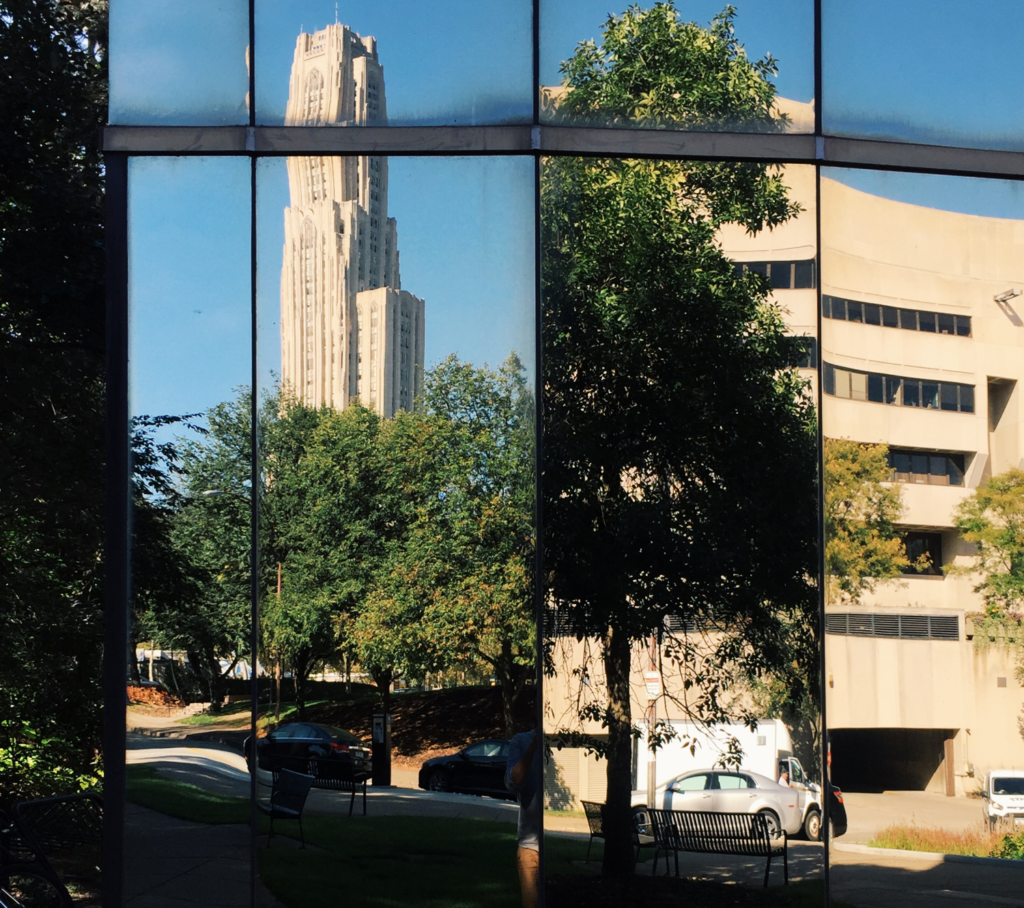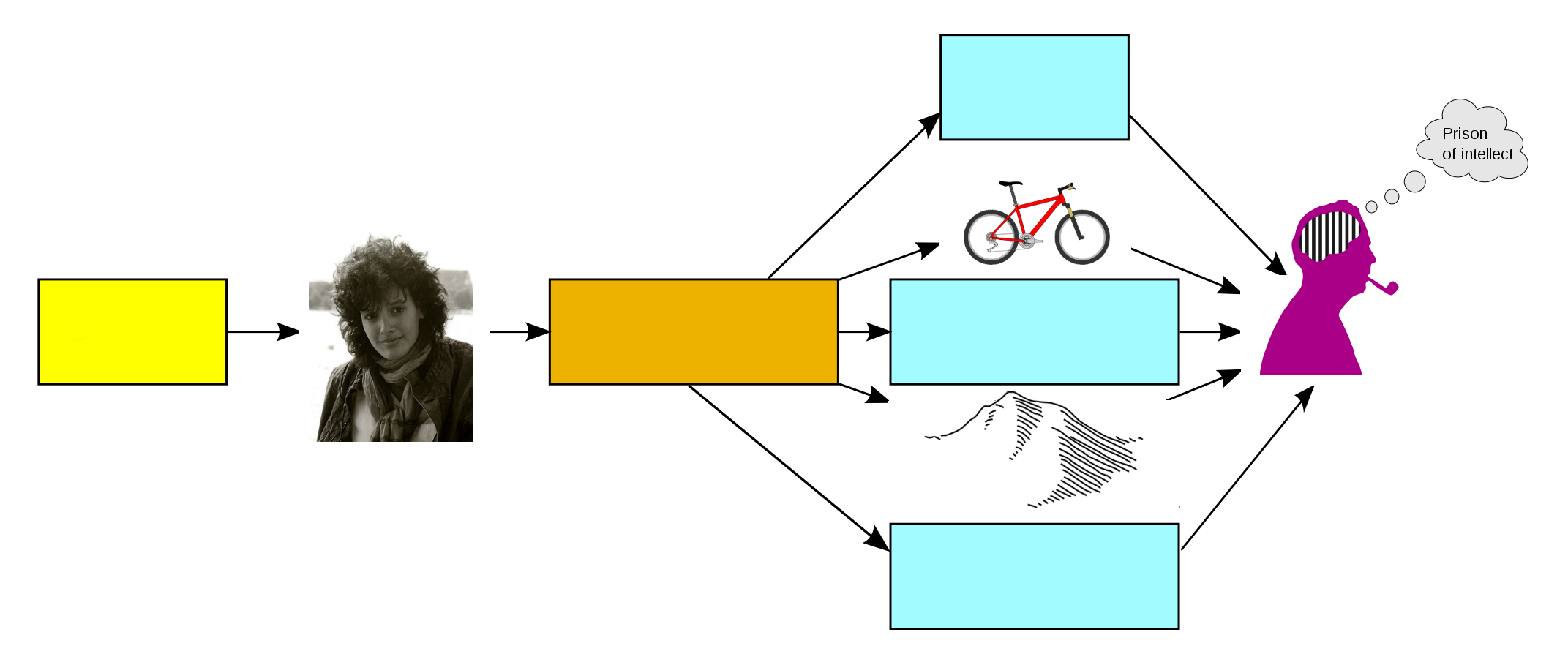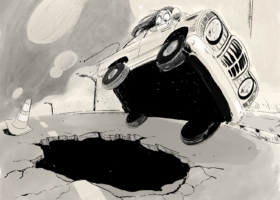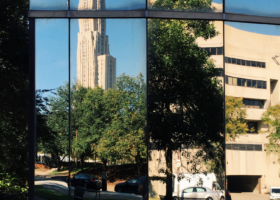
In the occasional column Pittsburgh, In Theory, academic Bartholomew Q. Kryzinski, MA, MFA, PhD considers the internet’s various questions about Pittsburgh through the lens of post-structuralist critical theory. Do you have a quotidian query for Bartholomew Q. Kryzinski, MA, MFA, PhD? Email us at info@theglassblock.com.
![]()
Q: I’m visiting Pittsburgh in June from Europe. Can’t rent a car. How fucked am I?
A: You are indeed “fucked,” but by your pre-existing imaginary of “Pittsburgh” rather than by your lack of a car. The question could be asked: Can we travel anywhere, or are we always-already entrapped by our expectations of where we are going?
Since media, by its very nature, mediates our experienced reality, you have always-already formed a clear understanding of what “Pittsburgh” is and means. Perhaps your understanding of the city has been informed by filmic representations of the city, such as Flashdance, The Fish That Saved Pittsburgh, and of course The Perks of Being a Wallflower. These simulacra of the city have created a false imaginary of a city rooted in nostalgia, disconnected from the daily realities of contemporary Pittsburgh, and notably, none of these films feature the Port Authority.
I suspect that you hope to gloriously jet about Pittsburgh in a vintage car, listening to the Smiths and waving at Jennifer Beals as she dances on top of a steel mill. Like the Japanese tourists who become emotionally unstable upon seeing a reality of Paris that clashes with their idealized version of the City of Lights, you will fail to adapt to the Paris of Appalachia.
When you come, your expectations will clash against the reality of contemporary Pittsburgh. Inevitably, you will have an existential crisis, breaking down in tears on the 88 bus during rush hour. But then again, is there anything more authentically Pittsburgh than that?

Q: Does anyone commute from Mt. Washington to downtown?
A: I suspect that you are intimidated by the name of your new neighborhood, since our phallogocentric world inevitably ascribes meaning to words. However, “mount,” a 13th century adoption from the Old French, via Anglo-French, of mont, meaning “mountain,” is a useless linguistic category, like all linguistic categories. After all, categorization is an act of linguistic violence which arbitrarily assigns connection between disparate real objects, beings, and experiences in the world. If Mt. Washington is a mount, what isn’t a mount? Who is to say that I am not a “mount”? Who is to say that you are not a “mount”?
While Mt. Washington is indeed categorized as a “mount,” it is up to you to ultimately determine what that means to you and your morning commute. You have written, “Moving there this summer. I like biking but the route looks pretty tough. I’m trying to avoid the incline but might have to suck it up,” but ultimately, you must construct your own imaginary of what it means to be a “mount,” what it means to “bike,” what it means to “[look] pretty tough,” what it means to “summer.” Divorce reality from the empty void of the signifier as you careen wildly down East Sycamore Street! Alternatively, you may simply take your “two-wheeled, non-motorized bicycle [onto] the Monongahela Incline for no additional charge.”

